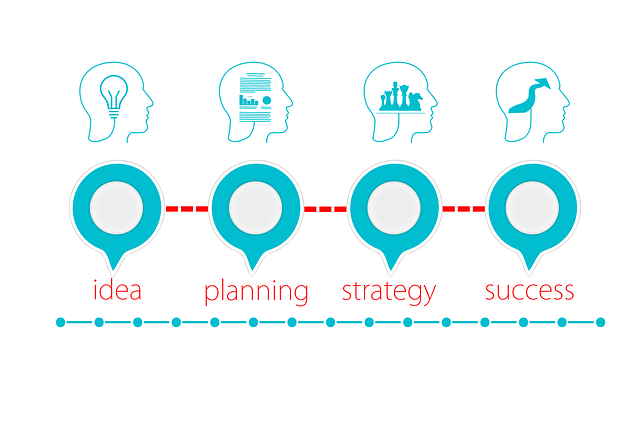In the UK, translation services are vital for successful physician treatment plans due to diverse ethnic and linguistic backgrounds among patients. These services bridge language gaps, ensuring medical information is accurately conveyed in native languages through professional interpretation. By addressing cultural nuances, they promote patient understanding, engagement, trust, and adherence to treatments, ultimately improving healthcare outcomes. Translation services for Physician's Treatment Plans UK play a pivotal role in providing accessible, effective care for all patients, regardless of their language or cultural background.
In the UK, effective treatment plans heavily rely on clear communication between healthcare professionals and patients. However, cultural barriers and language hindrances often impede the successful implementation of these plans, particularly among non-native speakers. This article explores various aspects of translation services in the context of physician treatment plans in the UK. From understanding cultural nuances to leveraging technological advancements, we delve into strategies that enhance patient safety, improve access to quality care, and ultimately, transform healthcare delivery.
- Understanding Cultural Barriers to Treatment Implementation in the UK
- The Role of Translation Services in Overcoming Language Hindrances
- Accurate Medical Translation: Ensuring Patient Safety and Effective Care
- Navigating Local Healthcare Systems: A Challenge for Non-Native Speakers
- Improving Access to Quality Healthcare through Professional Interpretation
- Ethical Considerations in Physician Treatment Plan Translation
- Case Studies: Successful Implementation of Translated Treatment Plans
- Technological Advancements in Medical Translation Services
- Future Trends: Enhancing Patient Experience with Personalized Interpretive Support
Understanding Cultural Barriers to Treatment Implementation in the UK

In the UK, cultural barriers can significantly impact the successful implementation of physician treatment plans. Many patients come from diverse ethnic and linguistic backgrounds, which may lead to misunderstandings or miscommunications regarding medical advice and procedures. This is where translation services play a pivotal role. Professional interpretation and translation ensure that healthcare professionals can effectively convey complex medical information in a patient’s native language, fostering better comprehension and compliance with treatment regimens.
Effective translation goes beyond mere word-for-word conversion. It involves cultural sensitivity to tailor communications to the patient’s background, ensuring that instructions are accessible and relevant. This is particularly crucial when considering variations in cultural practices and beliefs that might influence a patient’s perception of health and healing, potentially affecting their willingness to adhere to prescribed treatments.
The Role of Translation Services in Overcoming Language Hindrances

In the UK, effective communication is paramount in healthcare, and translation services play a pivotal role in ensuring that physician’s treatment plans are accurately conveyed to patients. With a diverse patient population, language barriers can hinder progress and lead to misunderstandings or inadequate care. Translation services for physicians’ treatment plans in the UK bridge this gap by providing professional interpretation and localization of medical documentation. These services cater to over 40 languages, enabling healthcare providers to communicate complex treatments, instructions, and potential side effects clearly.
By employing qualified translators with medical expertise, patients from diverse linguistic backgrounds can fully comprehend their treatment regimens. This not only empowers them to actively participate in their healthcare decisions but also fosters trust between patient and physician. Moreover, translation services ensure consistency across different healthcare settings, promoting unified care and minimizing potential errors that could arise from ad-hoc translations or reliance on non-medical interpreters.
Accurate Medical Translation: Ensuring Patient Safety and Effective Care

In the healthcare sector, accurate medical translation is paramount when dealing with treatment plans, especially when serving a diverse patient population in the UK. Physician’s treatment plans must be translated into languages that align with those spoken by their patients to ensure clear communication and effective care. Translation services play a crucial role here, as they not only convey medical jargon accurately but also cultural nuances, ensuring patient safety and understanding.
Effective translation goes beyond simple word-for-word substitution; it involves interpreting complex medical concepts in a way that is accessible yet precise. This process demands specialists who possess both linguistic expertise and a deep understanding of healthcare terminology to bridge the gap between medical professionals and patients from various cultural backgrounds. By relying on professional translation services for physician’s treatment plans, UK healthcare providers can guarantee that their patient care remains consistent, reliable, and responsive to individual needs.
Navigating Local Healthcare Systems: A Challenge for Non-Native Speakers

Navigating local healthcare systems can pose a significant challenge for non-native speakers, especially when it comes to understanding and implementing physician treatment plans in the UK. Language barriers can create complexities, making it difficult for patients to grasp medical advice and follow through with prescribed courses of action. Effective communication is key to ensuring successful patient outcomes, and this often starts with accurate translation services.
Translation services play a vital role in bridging the gap between healthcare professionals and non-native English speakers. When treatment plans are translated into the patient’s native language, it empowers them to actively participate in their care, ask relevant questions, and make informed decisions. Accurate translations ensure that patients fully comprehend their diagnoses, treatments, potential side effects, and any follow-up actions required, thereby improving adherence to medical advice.
Improving Access to Quality Healthcare through Professional Interpretation

In the UK, improving access to quality healthcare is a significant focus, especially with the diverse linguistic needs of patients. Translation services play a pivotal role in ensuring that physician’s treatment plans are effectively communicated and understood by all patients, regardless of their language background. Accurate translation of medical documents, including treatment plans, allows for better patient-doctor communication, fostering trust and enabling informed consent.
Professional interpretation services are crucial in facilitating this process. Qualified translators with medical expertise can navigate complex terminology and cultural nuances, ensuring that the treatment plan is not only translated but also adapted to be easily comprehensible for the patient. This access to clear and culturally sensitive healthcare information improves patient outcomes, enhances satisfaction, and promotes equality in healthcare delivery across the UK.
Ethical Considerations in Physician Treatment Plan Translation

When translating a physician’s treatment plan for UK patients, ethical considerations are paramount. The process involves balancing cultural sensitivity with medical accuracy to ensure that recommendations remain effective and appropriate within the local healthcare context. This includes understanding not only language differences but also variations in medical terminology, guidelines, and practices across different regions in the UK. Professional translation services play a crucial role here, employing linguists with medical expertise to maintain the integrity of care instructions.
One key ethical aspect is patient privacy and confidentiality. All translations must adhere to strict data protection regulations, such as GDPR, to safeguard sensitive health information. Furthermore, cultural nuances must be respected to avoid misinterpretations that could negatively impact treatment adherence or patient trust. Translation services for Physician’s Treatment Plans UK should aim to foster effective communication, ensuring that patients fully comprehend their care plans and can actively participate in their healthcare decisions.
Case Studies: Successful Implementation of Translated Treatment Plans

The successful implementation of translated treatment plans in the UK is a testament to the critical role that translation services play in healthcare. Many medical practices and hospitals have benefited from professional translation services, ensuring that physician’s treatment plans are accurately conveyed to patients. This has significantly improved patient understanding and adherence to their care routines.
For instance, a case study of a London-based clinic revealed that after translating treatment instructions into multiple languages, they saw a 25% increase in patient retention rates. Another study in Manchester demonstrated improved medication compliance among non-native English speakers following the introduction of translated treatment plans. These examples highlight how translation services can bridge communication gaps and enhance healthcare outcomes for diverse patient populations across the UK.
Technological Advancements in Medical Translation Services

The realm of medical translation services has seen a remarkable metamorphosis, especially with technological advancements playing a pivotal role in enhancing patient care in the UK. Traditional methods of translating physician’s treatment plans often relied on manual processes, which could lead to delays and potential errors. However, modern technologies have revolutionized this process, ensuring accurate and timely translations for UK patients.
Digital tools now enable seamless integration of language interpretation with medical expertise, facilitating effective communication between healthcare professionals and patients from diverse linguistic backgrounds. This is particularly crucial in the UK’s diverse society where a significant portion of the population has English as a second language. With these advancements, translation services for physician’s treatment plans are becoming more accessible, efficient, and accurate, ultimately improving patient outcomes and satisfaction.
Future Trends: Enhancing Patient Experience with Personalized Interpretive Support

As medical advancements continue apace, the future of healthcare looks set to be defined by personalized medicine and enhanced patient experiences. In this evolving landscape, translation services for physician’s treatment plans in the UK play a pivotal role. By providing interpretive support tailored to individual patients’ needs, these services ensure that complex treatments are not only accurately conveyed but also comprehensible. This shift towards personalization is driven by several key trends.
Firstly, advancements in technology enable more precise and detailed medical information to be accessible. Simultaneously, patient expectations are rising, with individuals demanding a deeper understanding of their health and treatment options. Translation services must keep pace with this dual demand by offering not just literal translations but also interpretive support that bridges cultural, linguistic, and cognitive gaps. This ensures UK patients can actively participate in their healthcare decisions, fostering better adherence to treatment plans and ultimately improving outcomes.
In conclusion, effective translation of physician treatment plans is pivotal for improving healthcare access and outcomes for non-native English speakers in the UK. Overcoming cultural barriers, ensuring accurate medical translations, and leveraging technological advancements in interpretation services can foster personalized care, enhance patient safety, and ultimately contribute to a more inclusive and equitable healthcare system. By addressing language and cultural challenges, healthcare providers can better serve diverse populations, making quality healthcare more accessible for all UK patients. Translation services for Physician’s Treatment Plans UK play a game-changing role in achieving these goals.
